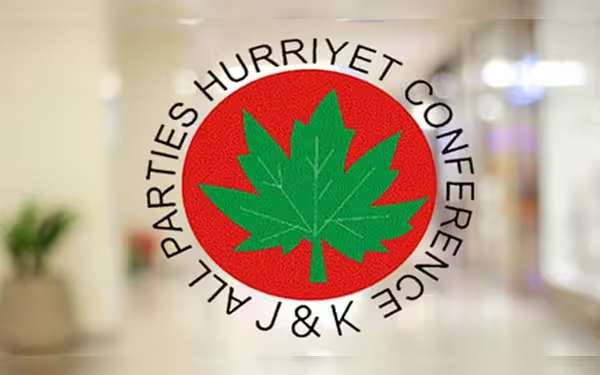Saturday, November 16, 2024 07:28 PM
APHC Condemns Militarization in IIOJK
- APHC highlights severe humanitarian crisis in IIOJK.
- Excessive military presence escalates regional tensions.
- Kashmir dispute poses risks for South Asia's stability.
 Image Credits: radio.gov.pk
Image Credits: radio.gov.pkAPHC condemns excessive militarization in IIOJK, highlighting humanitarian crisis and escalating tensions in the region.
The situation in Indian Illegally Occupied Jammu and Kashmir (IIOJK) has been a point of contention for many years. The region has seen a significant military presence, which has raised concerns among various groups, including the All Parties Hurriyat Conference (APHC). This organization, which represents a coalition of pro-freedom parties in Kashmir, has recently voiced its strong disapproval of what it describes as excessive militarization in the area.
In a statement released from Srinagar, APHC spokesperson Abdul Rashid Minhas highlighted the severe humanitarian crisis that has emerged as a result of this militarization. He pointed out that the heavy military presence not only affects the daily lives of the local population but also escalates tensions in an already volatile region. Minhas referred to the situation as a potential "nuclear flashpoint" in South Asia, emphasizing the risks involved if the longstanding Kashmir dispute remains unresolved.
The APHC's condemnation of the military buildup in IIOJK is not just a political statement; it reflects the deep-seated fears of the people living in the region. Many residents have reported feeling unsafe and oppressed due to the constant military surveillance and operations. The humanitarian crisis, as described by the APHC, includes issues such as restricted movement, lack of access to basic services, and a pervasive atmosphere of fear.
Furthermore, the unresolved Kashmir issue has implications that extend beyond the borders of India and Pakistan. It has the potential to spark conflict not only between these two nations but also to involve other countries in the region. The international community has often called for dialogue and peaceful resolution, but the situation on the ground continues to deteriorate.
The excessive militarization of IIOJK is a pressing issue that requires immediate attention. The voices of the people, as represented by the APHC, must be heard in order to foster a peaceful resolution to the Kashmir conflict. As the world watches, it is crucial for all parties involved to prioritize dialogue over military action, ensuring that the rights and well-being of the Kashmiri people are at the forefront of any discussions. Only through understanding and cooperation can a lasting peace be achieved in this troubled region.













